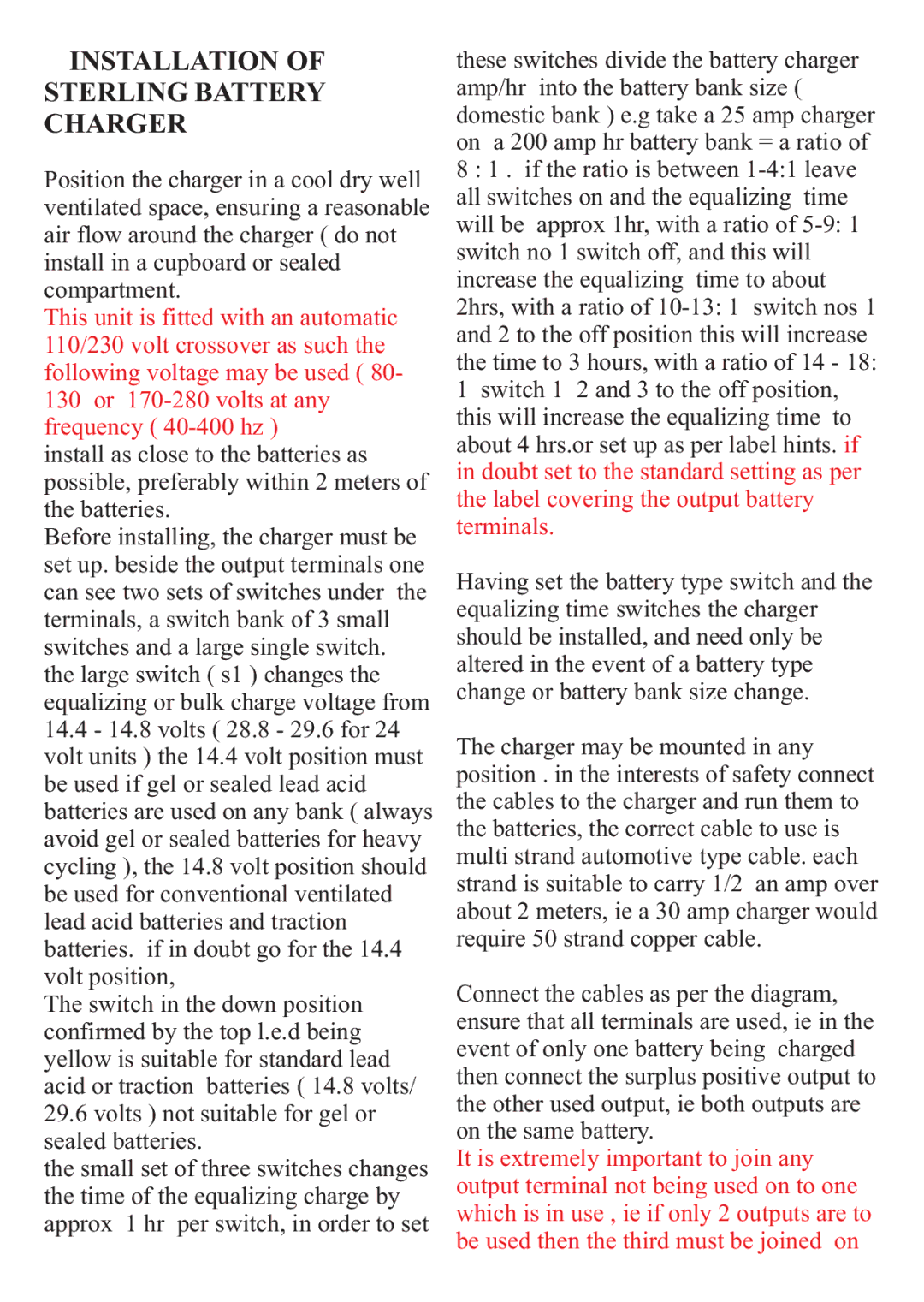2415CE, 1210CE, 1230CE, 3616CE, 1220CE specifications
Sterling Power Products specializes in high-performance battery management systems designed for demanding power applications. Among their impressive lineup, the 1250CE, 1240CE, 2425CE, 1220CE, and 3616CE models stand out for their advanced features and innovative technologies.The Sterling Power 1250CE is engineered for efficiency, providing a seamless charging solution for both starter and service batteries. This model incorporates smart battery management technology, allowing it to adapt to the specific needs of each battery, optimizing charging times while minimizing energy loss. With a robust design, it is ideally suited for marine and off-grid applications.
Moving on to the 1240CE, this unit excels in compactness without sacrificing power. It is designed to deliver a reliable output of 40A, making it suitable for smaller vessels or vehicles requiring efficient energy use. The 1240CE features advanced temperature compensation, ensuring consistent performance in varying environmental conditions.
The 2425CE model takes power management to the next level, delivering 25A with additional capabilities for connecting multiple battery banks. This versatility makes it an ideal choice for complex systems, such as those found in larger boats or motorhomes. The 2425CE also integrates a user-friendly interface that allows operators to monitor battery health and performance easily.
The 1220CE is particularly notable for its lightweight design and energy efficiency. With a current output of 20A, it is perfect for less demanding applications while still retaining high reliability. The unit employs over-voltage protection and short-circuit safety features, ensuring safe operation even in challenging environments.
Finally, the 3616CE stands out with a substantial output of 60A. Designed for larger installations, this model provides exceptional power management capabilities and is equipped with multi-stage charging technology. This feature helps to prolong battery life by optimizing the charging cycle based on the battery's state of charge.
In summary, the Sterling Power Product range of 1250CE, 1240CE, 2425CE, 1220CE, and 3616CE showcases a commitment to innovation in battery management. Each model has unique features and technologies that cater to various applications, making them indispensable components for any energy-conscious setup. These products not only enhance performance but also contribute to the longevity and safety of battery systems.
